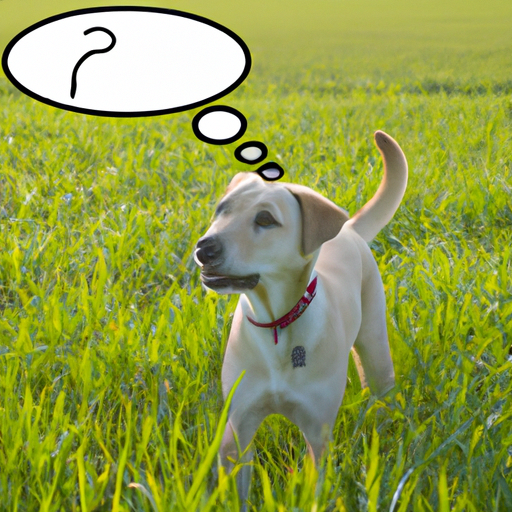Introduction
You’ve likely watched your furry friend munching on grass and wondered, “Why on earth is my dog eating grass?” The sight of your dog acting like a cow can be puzzling, but rest assured, you’re not alone in this curiosity.
Understanding the Canine Diet
Unlike humans, dogs are omnivores, meaning they eat both meat and plant material. Their ancestors, the wolves, were also known to eat plant material. When they hunted and killed their prey, they would consume the entire animal, including the stomach contents, which often contained plant material.
So, your dog’s inclination to eat grass is actually quite natural. However, there are a few specific reasons why your pet might resort to this behavior:
- Nutritional Needs: Dogs might eat grass to fulfill their nutritional needs. They may be trying to increase their fiber intake or make up for a deficiency in their diet.
- Digestive Issues: If your dog is feeling nauseous or has an upset stomach, they might eat grass to induce vomiting and soothe their digestive system.
- Behavioral Reasons: Sometimes, dogs might eat grass out of boredom or anxiety. It can be a way for them to relieve stress or simply have something to do.
What the Experts Say
Veterinarians and animal behaviorists have a few theories about why dogs eat grass.
| Expert Opinion | Detail |
|---|---|
| Dietary Deficiency | Some experts believe that dogs eat grass as a way to make up for a dietary deficiency. This could be a lack of fiber or other nutrients. |
| Instinctive Behavior | Others suggest that eating grass is an instinctive behavior that helps dogs purge their system or deal with an upset stomach. |
| Behavioral Issues | Still others think that grass-eating might be a sign of behavioral issues like boredom or anxiety. |
The Risks and What You Can Do
While eating grass is typically harmless, there are some potential risks you should be aware of:
- Pesticides and Herbicides: If the grass your dog is munching on has been treated with pesticides or herbicides, it could pose a health risk.
- Parasites: Grass can also harbor parasites like ticks and fleas, which can transmit diseases to your dog.
If you notice your dog eating grass frequently, here’s what you can do:
- Switch to a high-fiber diet or ask your vet for dietary recommendations.
- Offer your dog safe alternatives to grass, like dog-friendly plants or vegetables.
- Keep your dog mentally stimulated with toys and activities to prevent boredom.
Frequently Asked Questions (FAQs)
Q: Is it normal for dogs to eat grass?
A: Yes, it’s a common behavior among dogs.
Q: Should I stop my dog from eating grass?
A: Not necessarily. But if it’s excessive or causing health issues, consult your vet.
Q: Can eating grass harm my dog?
A: Usually not, but grass treated with chemicals or hosting parasites can be harmful.
Q: What if my dog eats grass and vomits?
A: If it happens occasionally, it’s not a concern. But frequent vomiting requires veterinary attention.
Understanding your dog’s behaviors, including their strange appetite for grass, helps you provide the best care for your beloved pet. So, the next time you see your dog chowing down on your lawn, remember they’re not trying to become vegetarian – they’re simply being their instinctive, curious selves.



